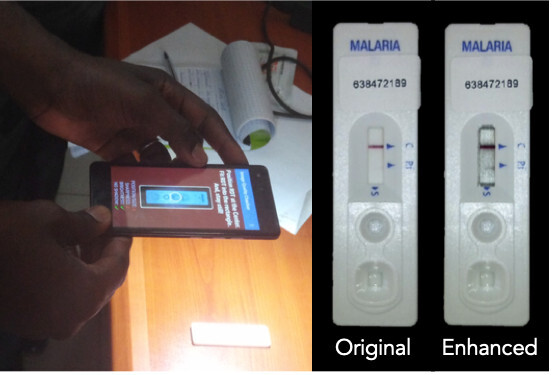@inproceedings{park2020supporting,
author = {Park, Chunjong and Mariakakis, Alex and Yang, Jane and Lassala, Diego and Djiguiba, Yasamba and Keita, Youssouf and Diarra, Hawa and Wasunna, Beatrice and Fall, Fatou and Gaye, Mar\`{e}me Soda and Ndiaye, Bara and Johnson, Ari and Holeman, Isaac and Patel, Shwetak},
title = {Supporting Smartphone-Based Image Capture of Rapid Diagnostic Tests in Low-Resource Settings},
year = {2020},
isbn = {9781450387620},
publisher = {Association for Computing Machinery},
address = {New York, NY, USA},
url = {https://doi.org/10.1145/3392561.3394630},
doi = {10.1145/3392561.3394630},
booktitle = {Proceedings of the 2020 International Conference on Information and Communication Technologies and Development},
articleno = {2},
numpages = {11},
keywords = {image processing, malaria, Rapid diagnostic tests (RDTs), image quality control, mobile health},
location = {Guayaquil, Ecuador},
series = {ICTD2020}
}

